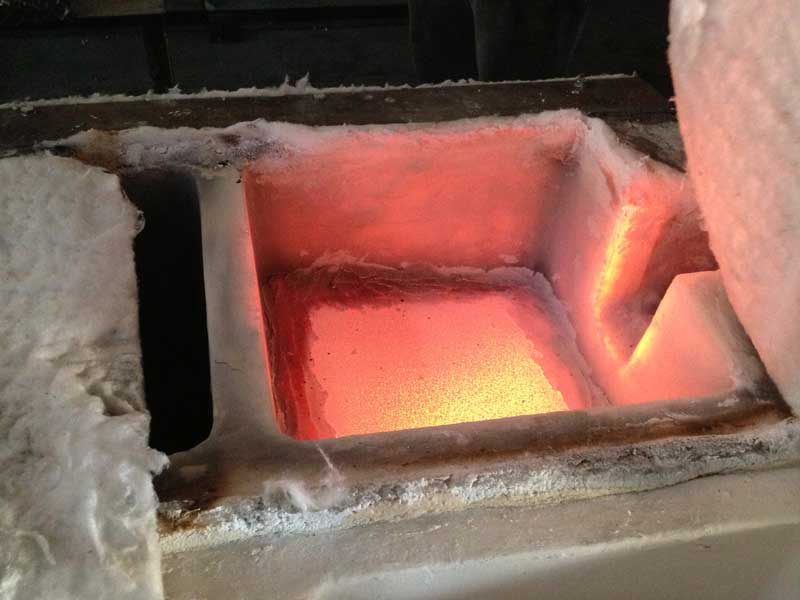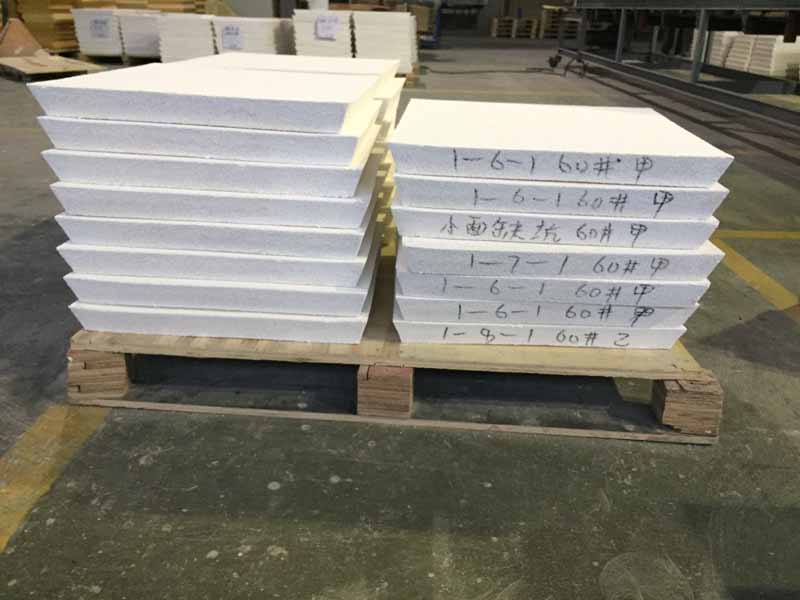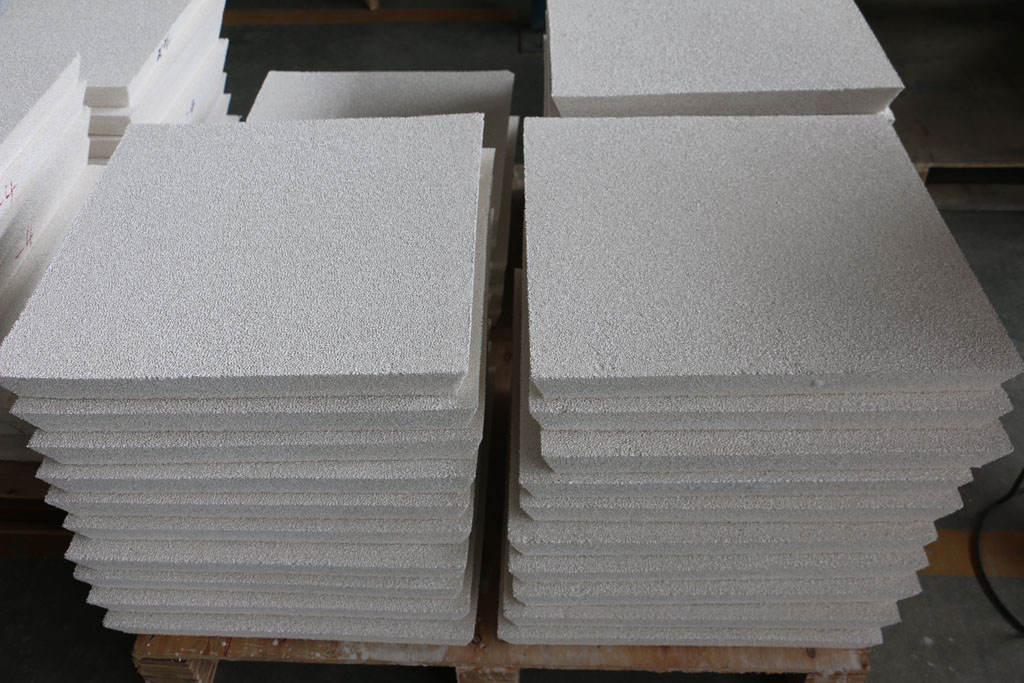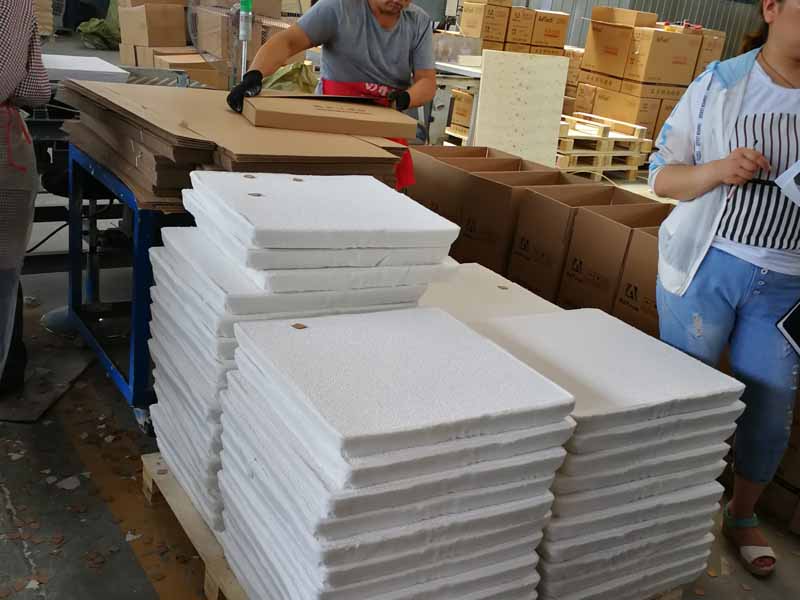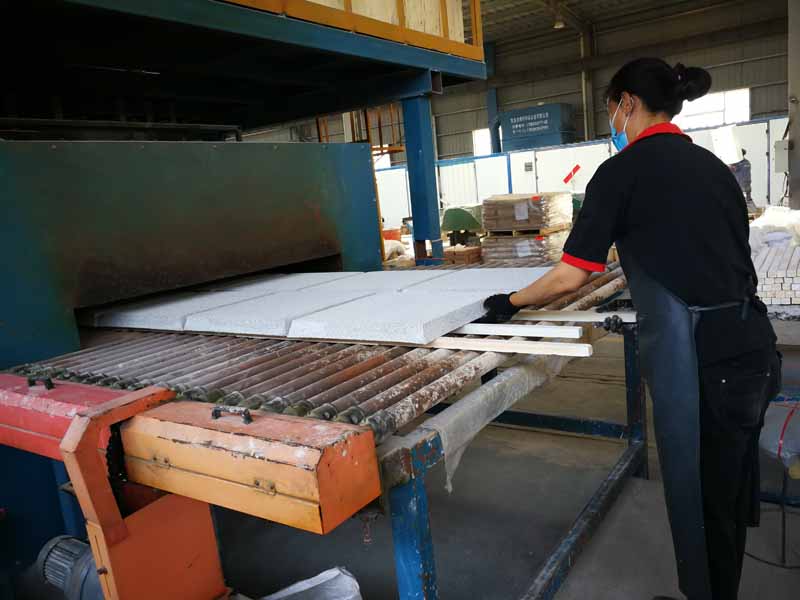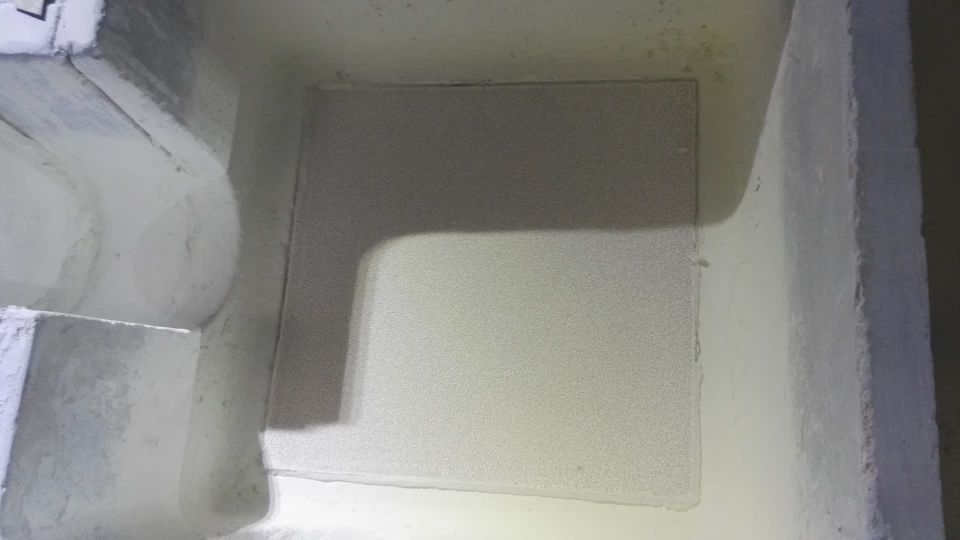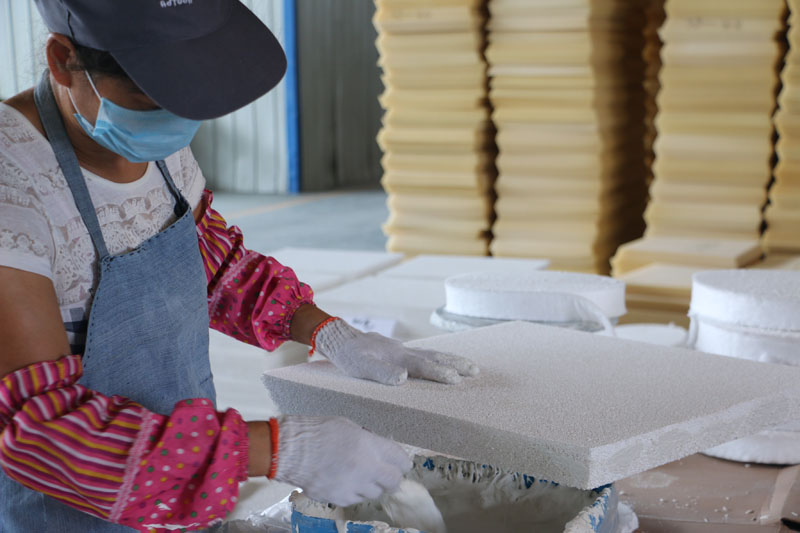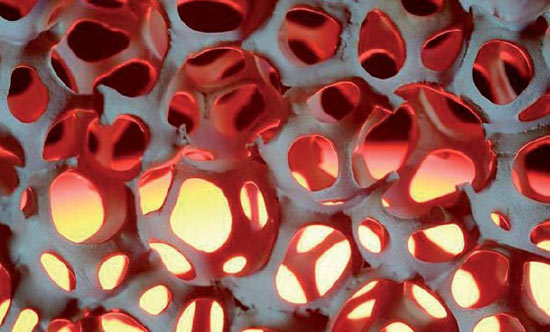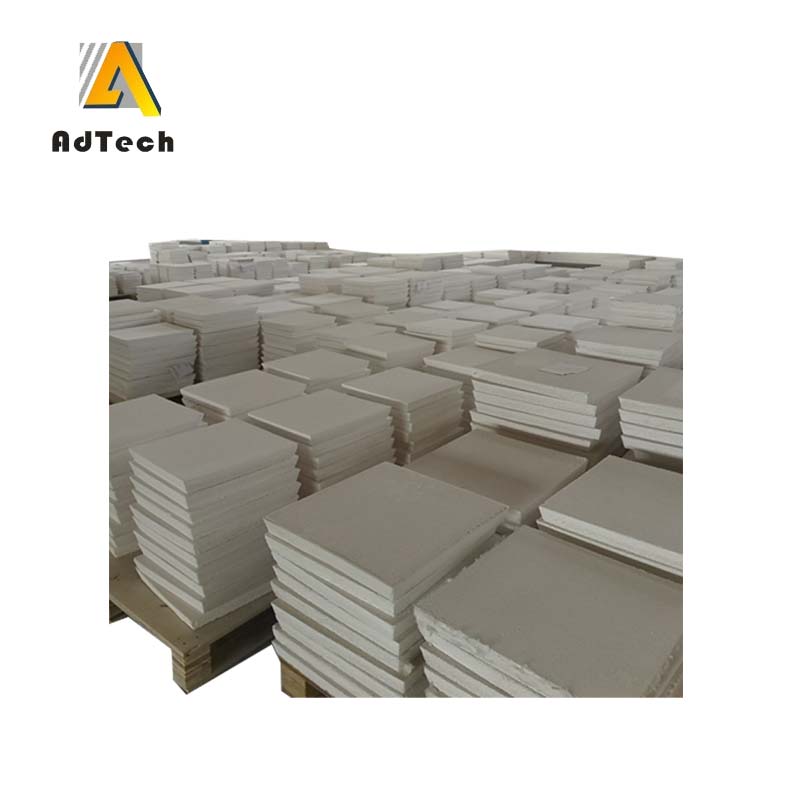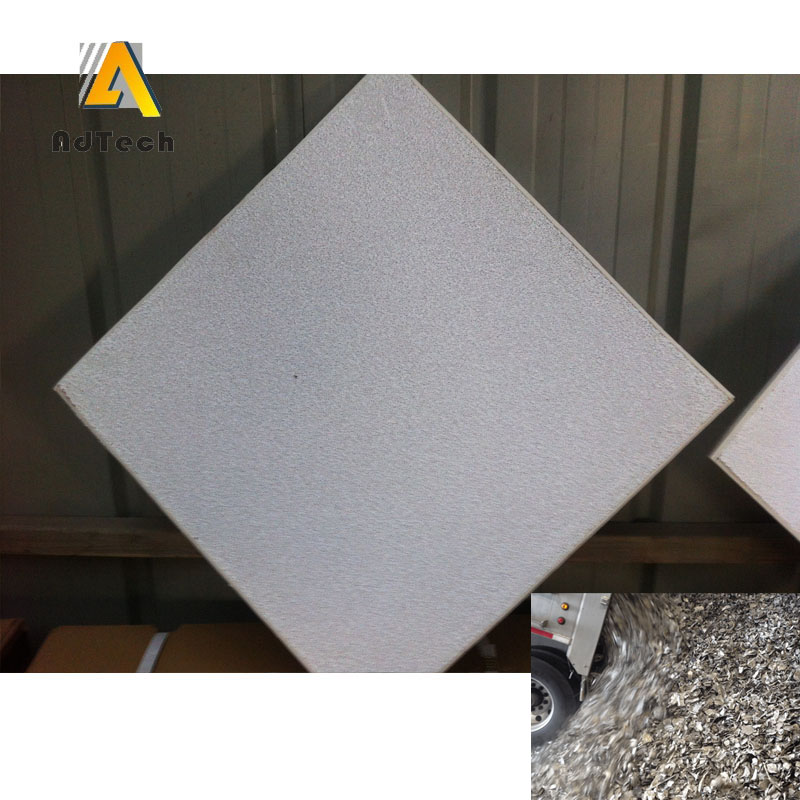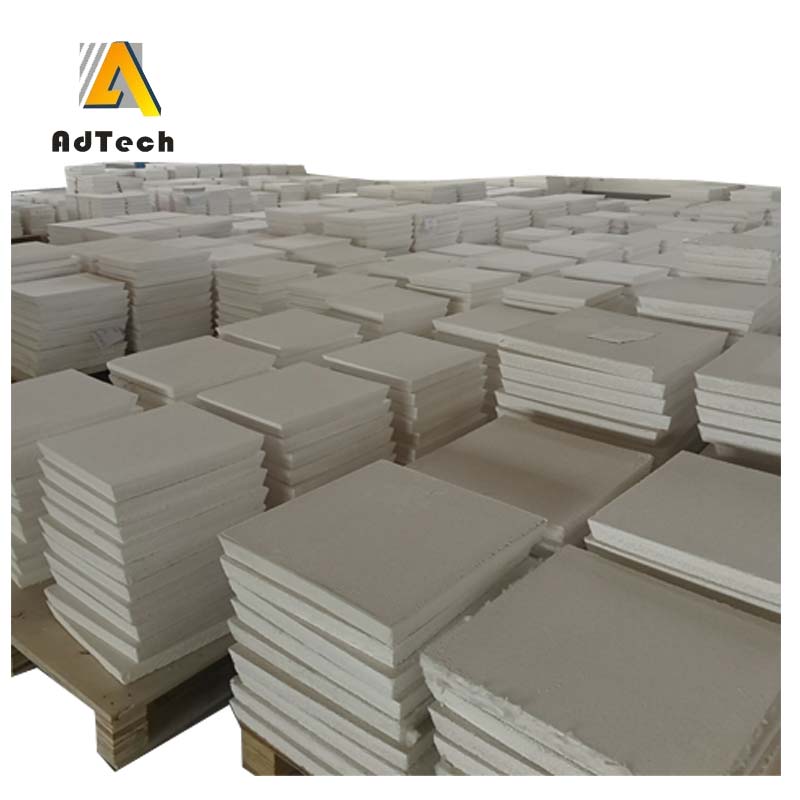Ceramic Foam Products
The development of Ceramic Foam Products began in the 1970s and is a porous material with high temperature properties. The pore diameter ranges from nanometer to micrometer, the porosity is between 20% and 95%, and the use temperature is from normal temperature to 1600 °C.
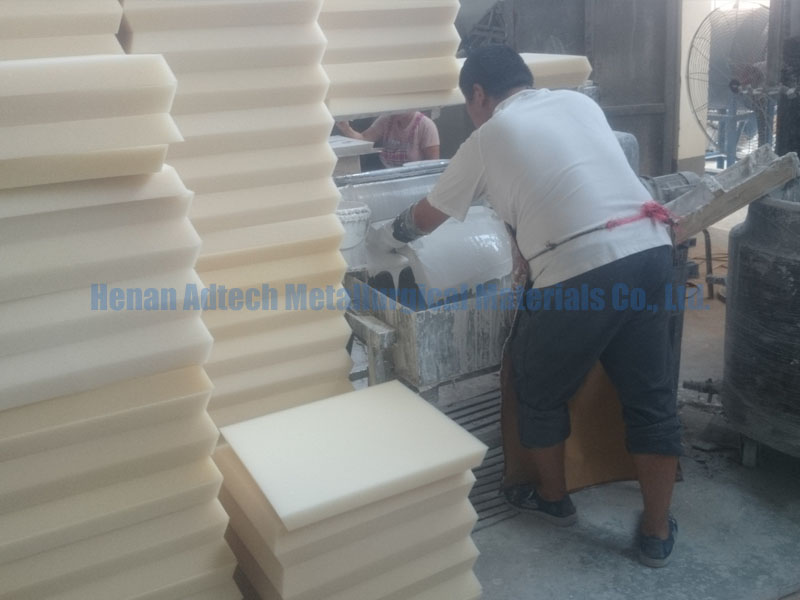
Ceramic Foam Products can generally be divided into two categories, open-cell (mesh) ceramic materials and closed-cell ceramic materials, depending on whether each cavity has a solid wall.
If the solid forming the foam is only contained in the pores, it is called an open-cell ceramic material, and the pores are interconnected.
If a solid wall is present, the foam is referred to as a closed cell ceramic material in which the voids are separated from one another by a continuous ceramic matrix.
However, most foamed ceramics have both open pores and a small number of closed pores.
Generally, pores with a diameter of less than 2 nm are microporous materials.
The pores between 2 and 50 nm are mesoporous materials.
The pores above 50 nm are macroporous materials.
China started the research of Ceramic Foam Products in the early 1980s.
In the past 20 years, more than a dozen scientific research institutions and manufacturers have reported on the research of foam ceramic products.
China’s Ceramic Foam Products still has a certain gap compared with foreign countries from the overall technical level.
Foam ceramic is a porous ceramic body with a high porosity and a three-dimensional grid structure, which is shaped like a tempered foam or a porcelain sponge.
Because of its high porosity, large specific surface area, thermal shock resistance, high temperature resistance, chemical corrosion resistance and good mechanical strength and filtration adsorption properties.
Can be widely used in heat exchange materials, gas materials, automotive exhaust equipment, purification of metallurgical industry, molten metal, thermal energy recovery, light industrial coating industry, industrial sewage treatment, thermal and acoustic insulation materials, used as a chemical catalyst carrier, electrolytic membrane and Separation of discrete components, etc.
The most ideal preparation method for Ceramic Foam Products is the organic precursor impregnation method.
Foamed ceramics prepared by such a molding method have been widely used in various fields, and have achieved relatively obvious effects.
Further control of slurry performance, proper optimization of inorganic binder system, and strict control of slurry impregnation and other processes can improve the performance of foamed ceramic products.
The mesh size of the selected organic foam is limited, limiting the pore size and structure of the resulting foamed ceramic material.
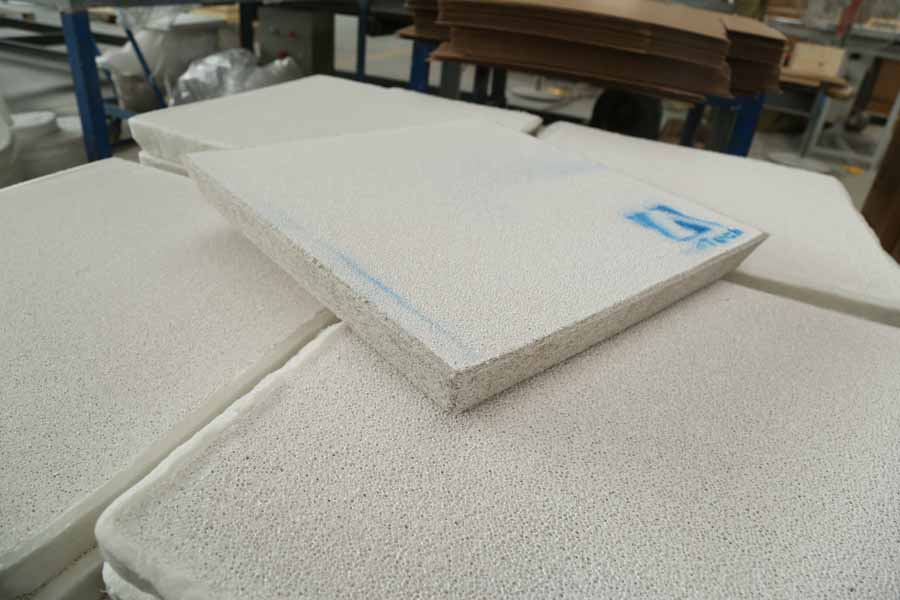
Ceramic Foam Filter production process
The Ceramic Foam Filter uses a three-dimensional network structure and an organic foam sponge connected to the pores as a carrier, invading it into a special ceramic slurry with thixotropic properties, and adopting a special roll extrusion process to uniformly apply the ceramic slurry to the skeleton of the carrier.
Then, it is dried and solidified and then fired at a high temperature.
Porous Ceramic Foam Filter Foam Ceramic Filters for Aluminum Alloys Since the first research in 1978, foam ceramic filtration technology has developed rapidly.
Porous Ceramic Foam Filter uses polyurethane foam as a carrier, immersing it in a coating made of ceramic powder, binder, sintering aid, suspending agent, etc., and then extruding excess coating to uniformly apply the ceramic coating to the carrier.
The skeleton becomes a green body, and the green body is dried and fired at a high temperature.
sales@adtechamm.com
ADTECH keeps focusing on the manufacture of the metallurgical material.
ADTECH is one pioneer following by the International Enterprise, who keeps focusing on the manufacture of the metallurgical material.
1.Ceramic Foam Filter
2.Degassing Unit
3.Filter Box
4.Hot-top casting series
5.Roll casting nozzle
6.Flux series
7.Other Metallurgical Material

